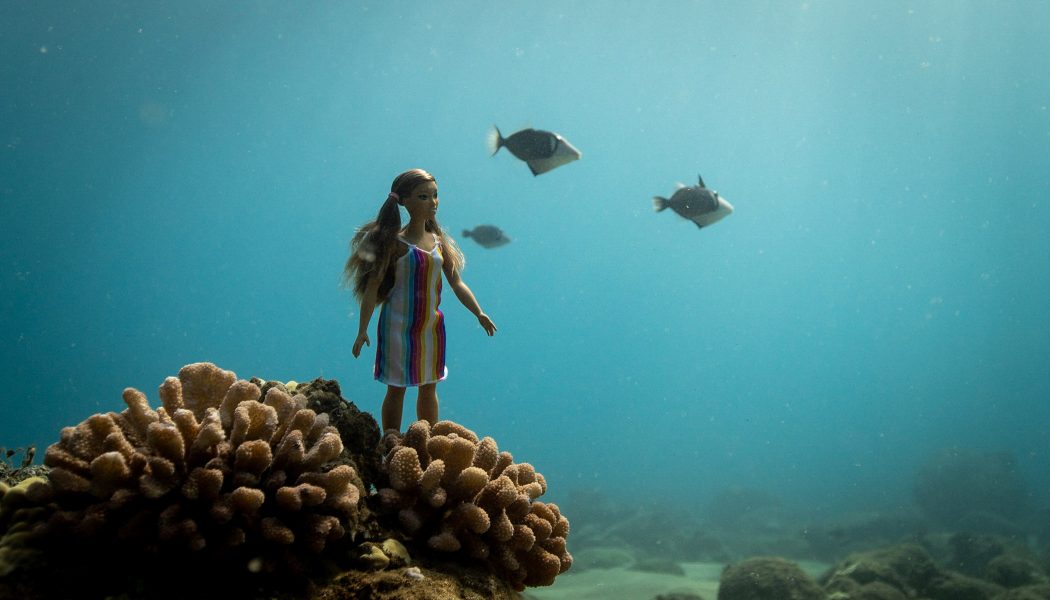Barbie® is making waves for ocean conservation and sustainability
Pretty good chance you know who Barbie is.
The iconic doll that allows children to be whoever they want to be, also while driving a pink convertible. A dream for anyone, really (suggestion for a pink delivery van is still pending upstairs). So what exactly do Whalebone and Barbie have to talk about? Actually a few things—Barbie and friends have gone through a couple of makeovers over the years, going from the blonde bombshell to representing all shapes and sizes of the real individual, committing to inclusion and diversity. But, our friends over at Mattel decided there was more to be done.
Putting her arched foot down, Barbie is digging her toes in the sand of sustainability. The new Barbie Loves the Ocean collection uses 90 percent recycled ocean-bound plastics* to create the bodies, accessories and playsets of the dolls with the goal of using 100 percent recycled, recyclable or bio-based plastics by 2030. Barbie Dream Planet.
Contributing to the conservation of the health of the oceans, we asked some of our favorite ocean-dwelling women to document the new Barbie dolls in the place where they spend the most time. GiGi Lucas, founder of SurfearNERGA and diversity advocate, and Kimi Werner, freediver and spearfisherwoman, both center themselves in the saltwater of the world’s oceans—makes sense as to why sustainability and ocean conservation is something that’s important to them. Framing the iconic dolls in a way that sheds new light on the environmental responsibility Barbie has committed to, we sat down with GiGi and Kimi to find out what Barbie means to them. Because you’re never too grown up to use your imagination. The prints of the new Barbie dolls made of recycled plastic will be sold at The Whalebone Print Shop, with 100% of proceeds going to Ocean Conservancy.
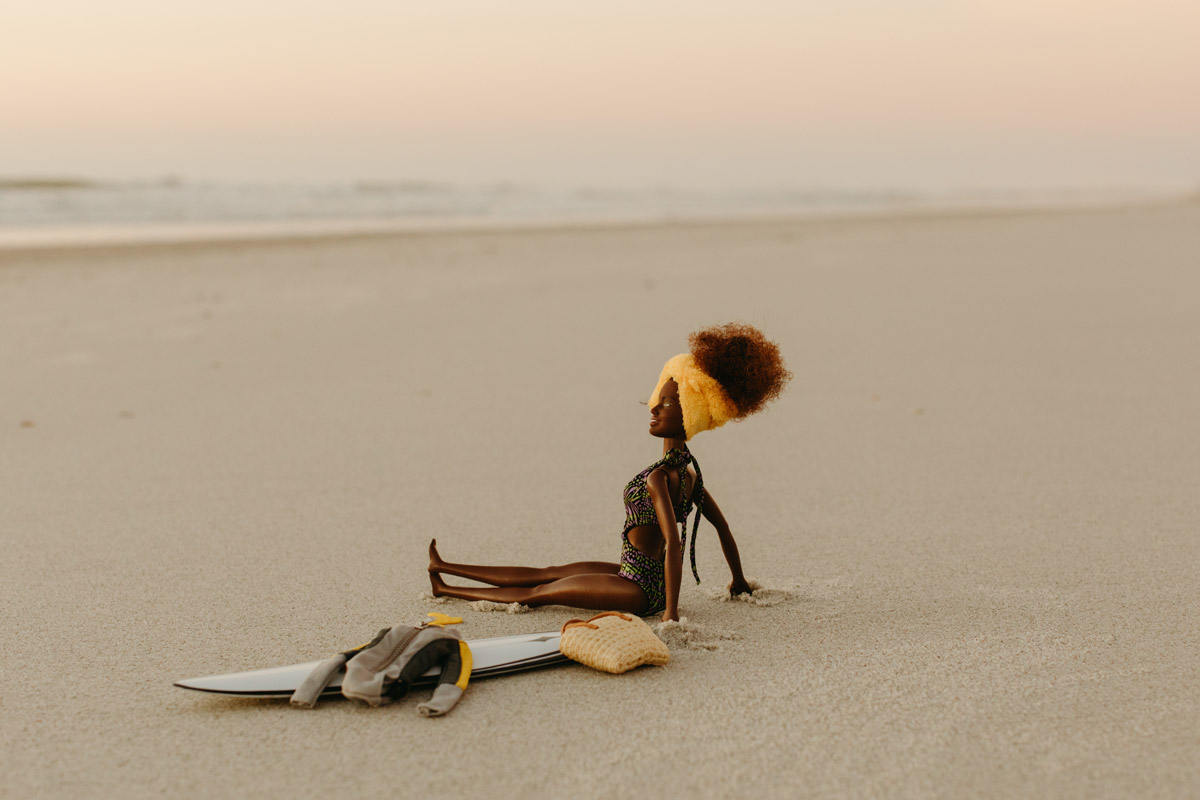
Whalebone: Why do you think the way Barbie is being rebranded is so important to young, influential children?
GiGi Lucas: As humans, I think one of our best qualities is that we have the privilege of constantly learning new things about the world and human behavior. Once Barbie realized its influence on society, it also learned it can help evolve society in a way that is positive, more inclusive and more accepting. And being that Barbie is consistently using its platforms to help positively influence body image, cultural acceptance and the like, I feel like it’s extremely important, especially for young girls, because that creative space always transcends into reality and impacts girls on what they can do in this world.
Kimi Werner: It’s huge to embrace feminine power and confidence. That’s what Barbie has always represented. She is a symbol of female confidence and that is something really important to embrace. But now to be rebranded and to see more beautiful diversity being shown in a form of female confidence is a huge step in a better direction.
I definitely also think it is crazy huge she is going to be made out of 90% of recycled ocean-bound plastics*. I think that is absolutely giant when it comes to setting a new standard
In being that she is such an icon and Mattel is such a giant. For them to do that is a big step of change and it really is raising the bar for others to do the same.
Nature thrives in diversity and therefore so do we.
Whalebone: Explain your relationship with the ocean in one sentence.
KW: The ocean is a mother who raised me, fed me, humbled me and loved me throughout my whole life.
GL: It is the most intimate form of forgiveness and acceptance I’ve ever had in my life.
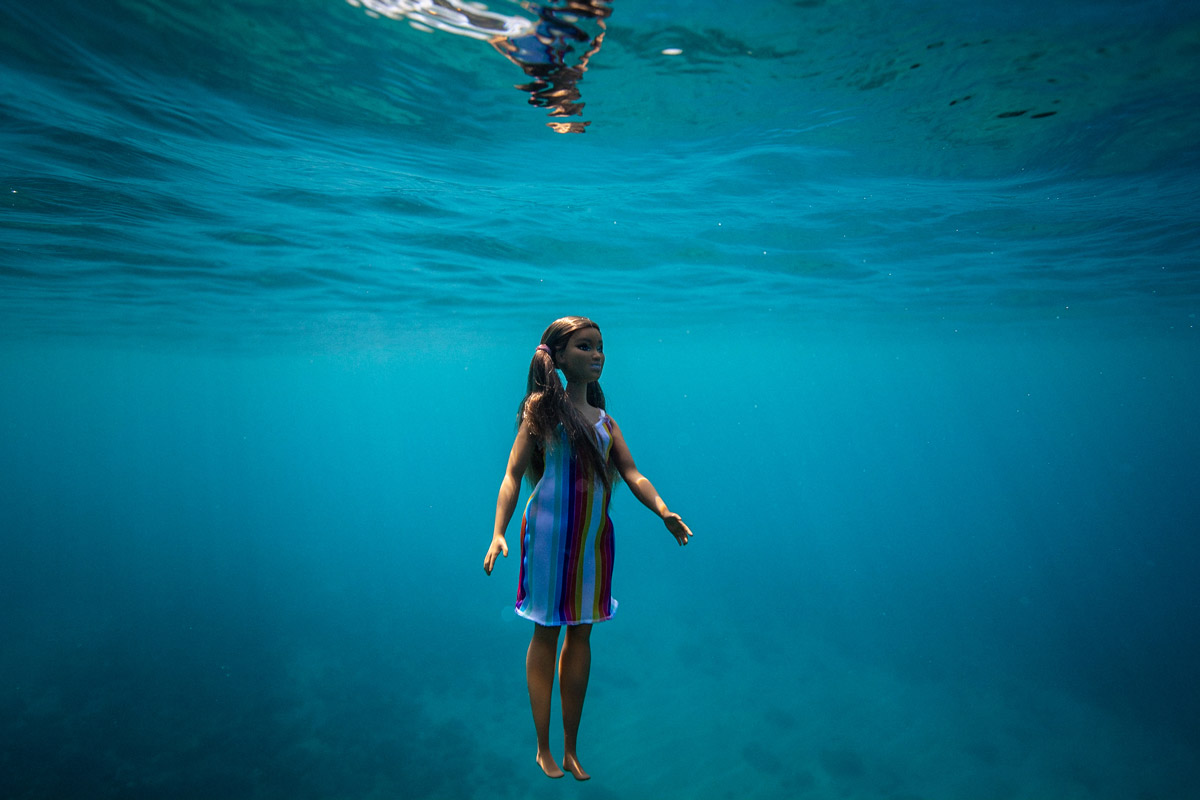
Whalebone: What does Barbie mean to you?
GL: Barbie for me represents this idea of being able to morph between reality and imagination. And within the imagination, being able to put myself in a world that I probably wouldn’t have otherwise thought about and being able to do it with ease. Because with Barbie it’s literally a matter of changing an outfit and you can become a doctor or astronaut and to be able to see me—especially when I was younger—in all these different scenarios planted a seed in my head that I am capable of doing anything and everything in this world.
Whalebone: Best advice you could give a young girl in today’s society?
KW: Truly love and embrace your true self, even if it’s different from your friends—you should be different—even if you’re different from what you see on TV or social media. Just know in your heart that you have a sense of belonging here for being exactly who you are. And then to find those places and activities where you feel that the strongest and spend more time there. If it’s in nature, picking flowers, playing in mud. If it’s drawing, dancing or doing something that might seem weird to everyone else. If that’s where you feel that true sense of belonging, where your spirit feels happy, hold on to that sense of belonging and don’t trade it for anything.
Whalebone: One thing the ocean has taught you?
KW: The ocean has taught me fear and the courage that emerges when facing it and responding to it, rather than panicking and resisting it.
GL: Humility. Over and over again.
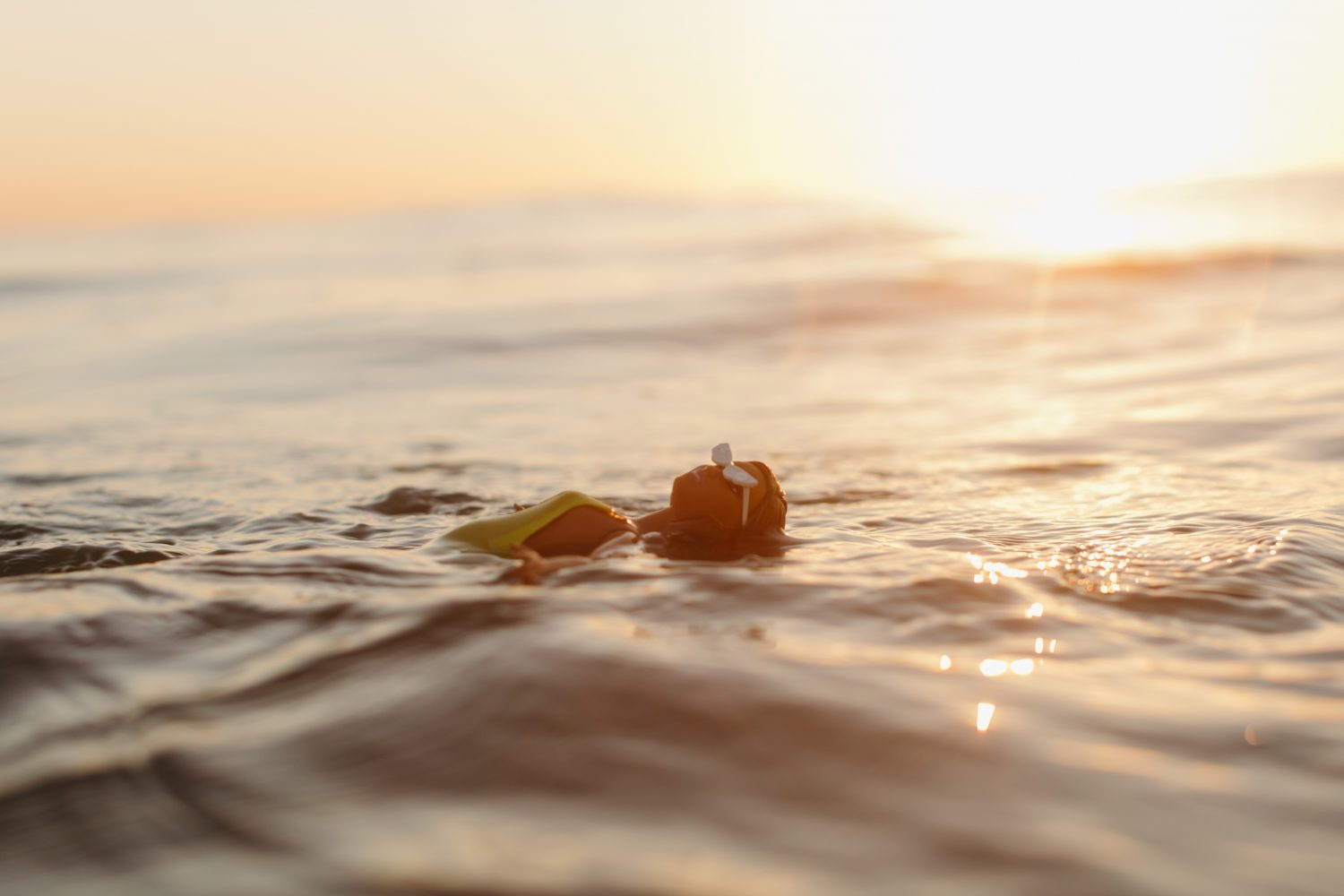
Whalebone: Were you a Barbie Dreamhouse or Barbie Pink Convertible kind of girl?
GL: To be more specific, I was a Barbie Silver Stingray Corvette kind of girl.
Whalebone: Something you’ve seen someone/org doing for ocean conservation that makes you think “Hell yeah, we’re getting somewhere.”
KW: Paepae O’He’eia. It’s a non-profit that has restored an over 800 year-old fish pond on the east side of Oahu. It was a sustainable way to provide food for the community in the ancient days of Hawaii and to see this organization restoring it, watching the fish come back into it, watching them sustainably harvest everything from Limu to invasive species like Samoan crabs and a diverse variety of fish to teach students ocean conservation and help feed a community rather than importing seafood from far away. That makes me say hell yeah.
Whalebone: Why is Barbie being made from ocean plastics something that is important to you?
GL: My greatest pastime is literally rooted in the ocean—not only is it my greatest pastime but the number one source of peace and joy and calm. Understanding this environment is under great threat, we as humans must pivot our behaviors and our actions towards it. It is very important to me that Mattel and Barbie are taking on this huge initiative to be carbon neutral. It’s a critical matter. I really appreciate the shifting of their practices and production to use recycled plastics and to be more responsible towards the environment while still delivering this historical figure in Barbie that can still influence young kids’ imaginations.
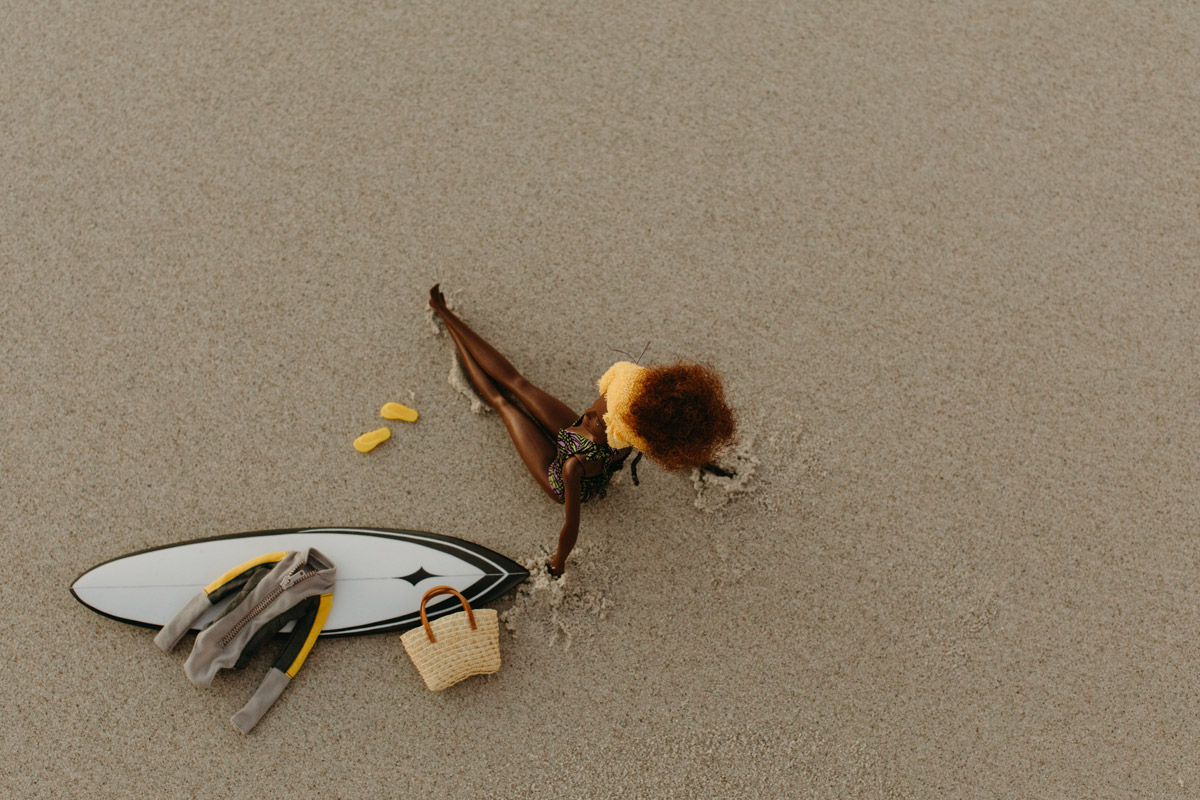
Whalebone: Do you feel represented through Barbie? How has this changed over the course of your lifetime?
GL: When I was younger I definitely did not feel directly represented by Barbie, primarily because the physical features that were shown within the doll weren’t necessarily a reflection of what I look like. However, that never stopped me from seeing myself in the creative spaces that Barbie presented to little kids.
Now I definitely see a closer resemblance to what I physically look like and what I do in my life which is great because it not only inspires me or people who look like me, but it also can inspire other people to experience a culture or an aesthetic that they might not have access to.
KW: The Barbie doll I chose to photograph makes me feel very represented. Her tan skin, wider hips than I remember Barbie dolls having before, and her darker yet sun-kissed hair. All of those things made me feel extremely represented with that particular doll, but my favorite part was definitely her hips being wider. And I think it would be awesome to keep expanding on that, to keep bringing more diversity of body shape and skin tone and styles into the mix.
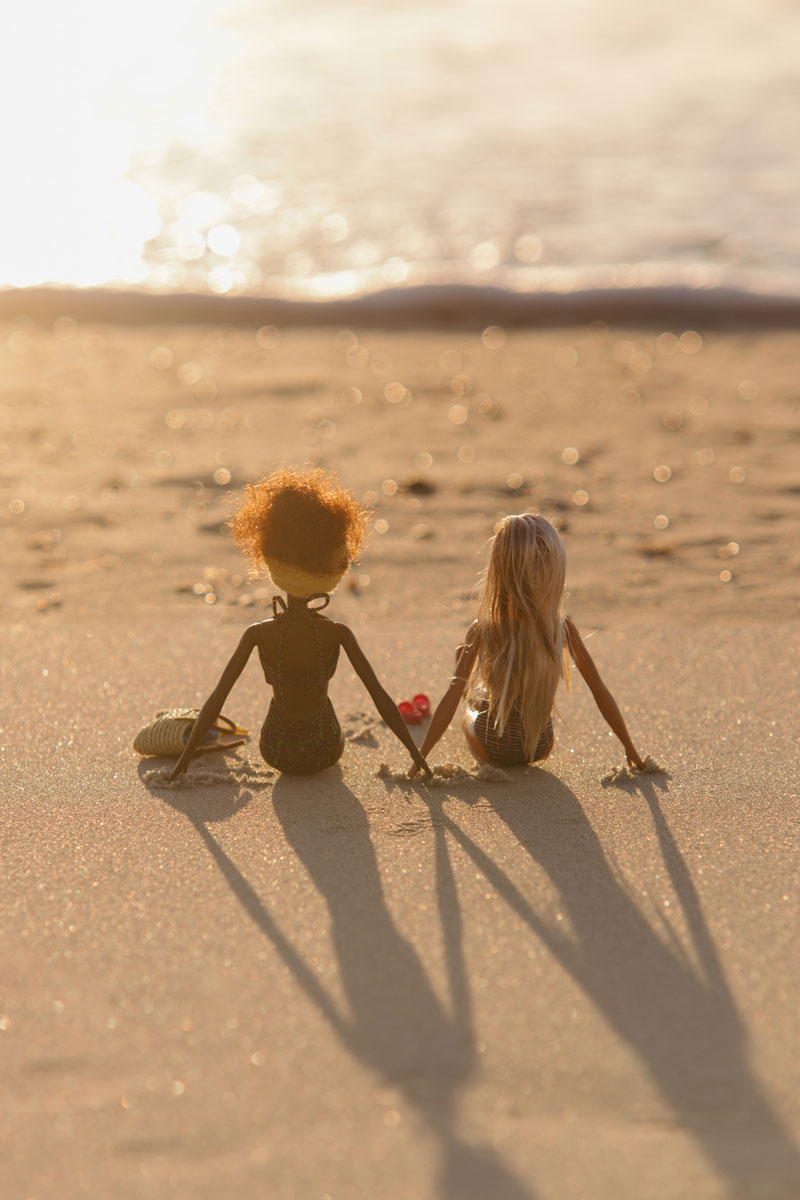
*Plastic parts made from 90% plastic sourced within 50km of waterways in areas lacking formal waste collection systems. Doll head, shoes, tablet and beach lantern accessory excluded.
More about GiGi Lucas and Kimi Werner
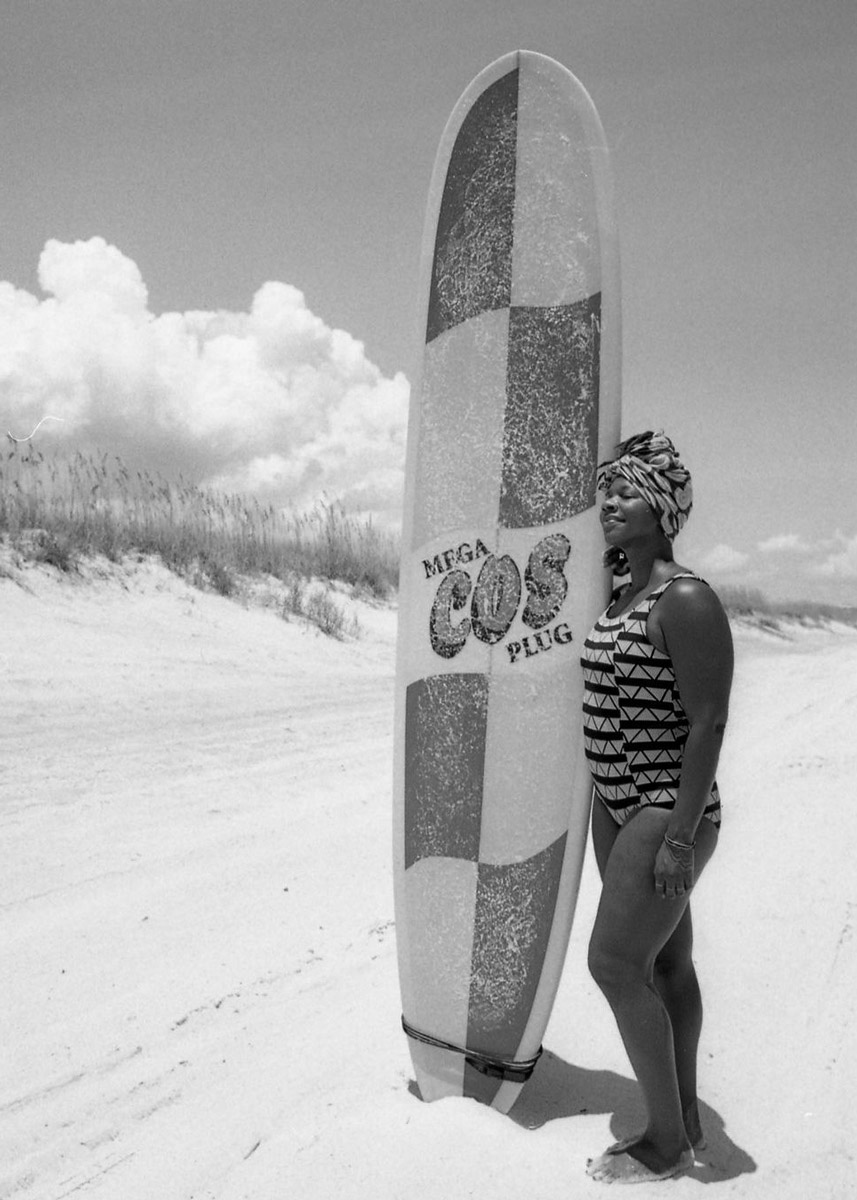
GiGi Lucas
GiGi Lucas is a cereal loving, diversity advocating, surfing ray of sunshine. Founder of SurfearNEGRA, her organization works to diversify the lineup and provide access to surfing and other ocean activities to girls of color.
Whalebone: How has SurfearNEGRA grown since the last time we spoke?
GL: Man. The awareness of what we’re trying to change is definitely a lot more mainstream and common knowledge. The demand has grown exponentially. I honestly feel like it’s the perfect storm—it’s not only the timing in my life to be able to create this organization, but it’s also surfing at the Olympics, it’s a lot of other groups that have come to the table, it’s the Black Lives Matter movement that has really helped bring more awareness to some of the discrepancies that are caused by systemic racism. So we can’t take all of the credit, but there has definitely been a significant change since the last time we spoke.
Whalebone: How does seeing other organizations dedicated to bringing diversity to the lineup make you feel?
GL: Oh incredible. Especially when sometimes you start off feeling like you’re the only one, but the more you talk about it and the more the information gets out, you realize that you’re not. There is so much work to do and everyone has a specific role to play in the greater overall movement. So I am thrilled there are more groups and not just African American groups—I’m thrilled there are Asian American groups, Native American groups, and more. Especially when we’re talking about surfing and the ocean, there’s clearly room for everyone. Clearly.
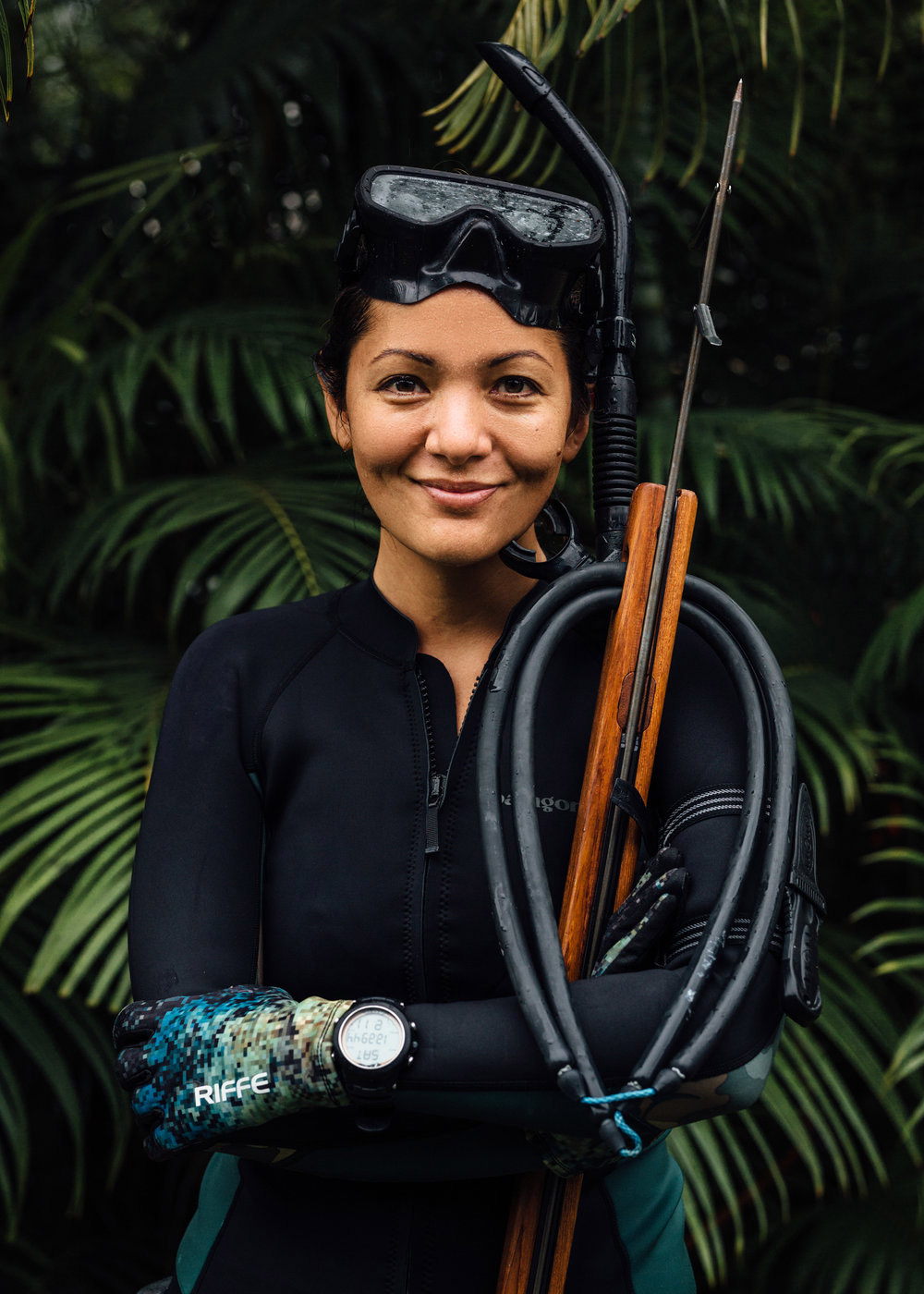
Kimi Werner
Kimi Werner is a Hawaii based free diver, US National Spearfishing Champion, certified culinary chef, artist and speaker, who advocates for sustainable living and ocean conservation. Living off the land, she expresses the importance and balance of respecting nature.
Whalebone: One piece of advice you would share with a person who doesn’t know how to start making the switch to a more sustainable lifestyle?
KW: Spend time in special places outdoors that make your heart happy. Start by falling in love. It’s a good place to start. Like any relationship, as you fall in love, you start to examine your choices in life and see how it affects the wellbeing of what you love. From this you’re also going to find your own strength within yourself. We all have different strengths. When fighting the good fight, not everyone will have the same way to do it. Not everyone will be able to go catch their own food or live off the land, or run a nonprofit. But we all have different strengths and you can find a way to use your own special power to make a difference. That is the key to sustainability. We all need to show up as our individual selves and use our own individual strengths to work together. Nature thrives in diversity and therefore so do we.
Whalebone: Greatest reward of being able to speak out about living off the land, the environment and trusting nature and have people hear you?
KW: The biggest reward is to simultaneously reunite people with the planet while making our ecosystems healthier. One of the biggest problems is that we as a society have lost our sense of belonging and connection to nature. We sometimes forget that we are near-animals and we are in this animal kingdom, we are in this natural world. That’s where we come from. We are nature, we are not separate. If people could truly hear the message of trusting,connecting and living more harmoniously with nature with and from the land and the ocean, not only would it give our lives so much more meaning, more health, more happiness, it’s going to make us actually feel connected to and care about something we are a part of. We are a part of something so much bigger than ourselves and that is one of the best feelings in the world.
When you care about something, you start to learn truly how to take care of it and what it needs and it becomes a really meaningful journey that is mutually beneficial to the planet and ourselves.

